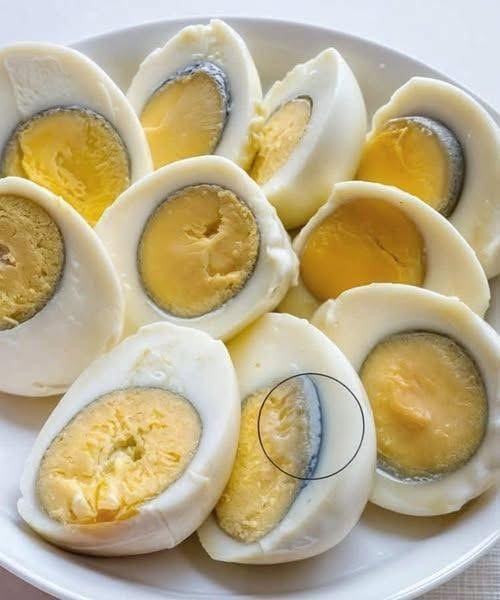
If you’ve ever peeled a hard-boiled egg and noticed an unappetizing green or grayish ring surrounding the yolk, you’re not alone. This phenomenon is more common than you might think—and it’s completely harmless! However, understanding why it happens can help you avoid it in the future. Let’s dive into the science behind this peculiar occurrence.
What Causes the Green Ring?
The greenish-gray discoloration around the yolk of a hard-boiled egg is caused by a chemical reaction between sulfur in the egg white and iron in the yolk. Here’s how it works:
- Sulfur Release : When eggs are boiled for too long or at too high a temperature, sulfur compounds in the egg white break down and release hydrogen sulfide gas.
- Iron Reaction : The released hydrogen sulfide reacts with iron in the yolk to form ferrous sulfide , which creates the greenish ring.
While the color change may make the egg look less appealing, it doesn’t affect the taste or safety of the egg. That said, it does indicate that the egg was overcooked.
Is It Safe to Eat?
Absolutely! The green ring is purely cosmetic and has no impact on the nutritional value or edibility of the egg. However, avoiding overcooking ensures a creamier yolk and better overall texture.
How to Prevent the Green Ring
Here are some simple tips to keep your hard-boiled eggs looking golden and delicious:
1. Don’t Overcook
- Boil eggs for the recommended time (usually 9–12 minutes depending on desired firmness). Longer cooking increases sulfur release and promotes the formation of ferrous sulfide.
2. Use Fresh Eggs
• • Older eggs tend to produce more sulfur as they age, making them more prone to developing green rings. Stick with fresh eggs for optimal results.
3. Lower the Heat
- Cooking eggs at a rolling boil can cause excessive sulfur release. Instead, bring water to a boil, then reduce heat to a gentle simmer.
4. Cool Quickly
- Once cooked, transfer eggs immediately to an ice bath or run under cold water to halt the cooking process. Rapid cooling minimizes the opportunity for sulfur and iron to react.
5. Try Steaming
- For foolproof results, steam eggs instead of boiling. This method reduces direct contact with hot water, minimizing sulfur production.
The Science Behind Perfect Hard-Boiled Eggs
To achieve flawless eggs without the green ring:
- Place eggs in a pot of cold water.
- Bring the water to a boil, then turn off the heat and cover the pot.
- Let the eggs sit in the hot water for 10–12 minutes.
- Transfer them to an ice bath for at least 5 minutes before peeling.
This “gentle boiling” technique preserves the egg’s natural chemistry and keeps the yolk beautifully yellow.
Fun Fact: Historical Misconceptions
In the past, many cultures believed the green ring indicated spoiled eggs. Modern science disproves this myth, but the stigma persists. By understanding the real cause, you’ll know exactly how to avoid it—and enjoy perfectly cooked eggs every time!
Conclusion
A green ring around a hard-boiled egg isn’t harmful—it’s simply a sign of overcooking or improper preparation. Armed with knowledge and these easy prevention tips, you’ll never have to worry about unsightly yolks again. Whether you’re making deviled eggs, egg salad, or just enjoying a quick snack, perfecting your hard-boiling technique ensures delicious, appetizing results every time.
So crack open a fresh egg and give it a try—you’ll be amazed at how simple it is to avoid the dreaded green ring!
